Experiential luxury travel has been on the rise in recent years, as travelers increasingly seek out unique and authentic experiences that allow them to connect with a destination on a deeper level.
At the heart of this trend are boutique hotels, which offer personalised, high-end accommodations that are often designed to reflect the local culture and environment.
In this article, we will explore why boutique hotels are such an important part of the experiential luxury travel trend and how they can help travellers create meaningful connections with the destinations they visit.
We will also discuss some of the key characteristics that set boutique hotels apart from traditional deluxe five-star hotels, and provide some tips for finding the perfect boutique hotel for your next experiential luxury travel adventure.
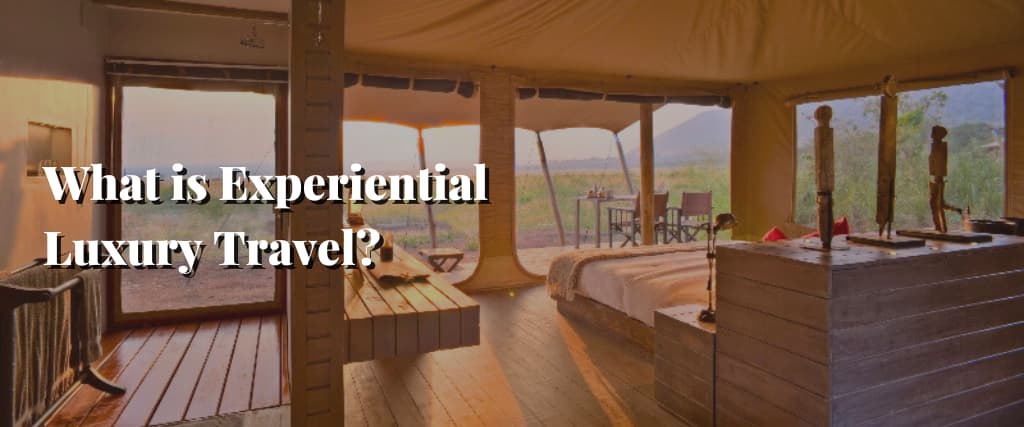
What is Experiential Luxury Travel?
Experiential luxury travel is all about seeking out unique and authentic experiences that allow travellers to connect with a place and its people on a deeper level. It’s about immersing oneself in the local culture, exploring hidden corners, and engaging in activities that allow one to truly experience a destination.
The rise of experiential luxury travel can be attributed to a number of factors. For one, as the world becomes increasingly connected, travellers are looking for ways to stand out from the crowd and create truly unique memories. They also want to experience something that they can’t get at home, something that is truly special.
Additionally, the rise of social media has played a pivotal role in the popularity of experiential luxury travel. With platforms like Instagram and TikTok, travellers are able to share their experiences with a wider audience, and this has led to a sort of competition to find the most unique and memorable experiences.
Another factor that has contributed to the rise of experiential luxury travel is the changing demographics of travellers. Millennials, who are now the largest demographic of travellers, are looking for experiences that are meaningful and that align with their values. Increasingly, and admirably, they want to make a difference in the places they visit and to support local communities and businesses.
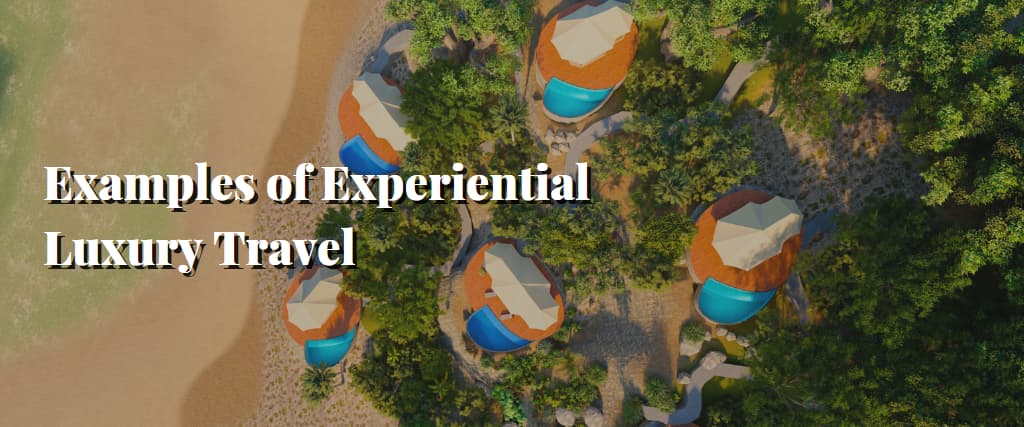
Examples of Experiential Luxury Travel
So, what does experiential luxury travel actually look like in practice? There are a wide variety of experiences that fall under this category, but they all share a few common elements.
First and foremost, they are all unique and authentic. They are not cookie-cutter experiences that can be found anywhere in the world. They are designed to highlight the unique aspects of a particular destination, whether that be the local cuisine, the history and culture, or the natural beauty of the area.
Some examples of experiential luxury travel experiences include:
Staying in a local homestay or boutique hotel that is designed to showcase the local culture and traditions.
Taking a culinary workshop with an indigenous or native chef to discover how to make traditional and authentic dishes using local ingredients.
Going on a guided hike through a national park or nature reserve to experience the natural beauty of a destination.
Participating in a cultural ceremony or festival to learn about the local customs and traditions.
Visiting a local market or artisan workshop to see how local crafts and products are made.
Taking a private tour of a historic site or landmark with a knowledgeable guide who can provide insights and context.
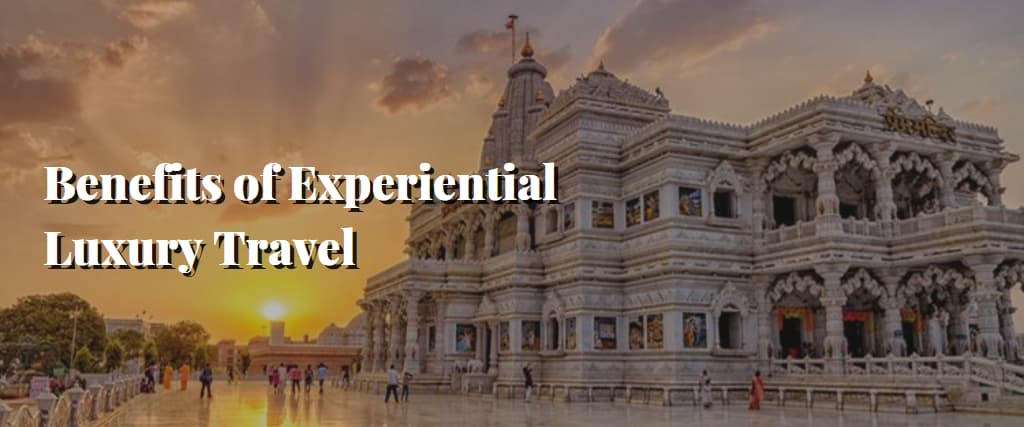
Benefits of Experiential Luxury Travel
There are a number of benefits to this type of travel, which go beyond simply enjoying beautiful destinations and luxurious accommodations.
One of the primary benefits of experiential luxury travel is the opportunity to have authentic experiences that allow you to connect with a destination and its people on a deeper level. This might involve learning about the local culture, trying new foods, or participating in traditional activities. These experiences can be incredibly rewarding and can help you form a more meaningful connection with a place.
Another benefit of experiential luxury travel is the high degree of personalisation that is often offered. Boutique hotels and tour operators, for example, may be able to tailor their offerings to your specific interests and preferences, allowing you to create a truly unique itinerary that reflects your individual tastes.
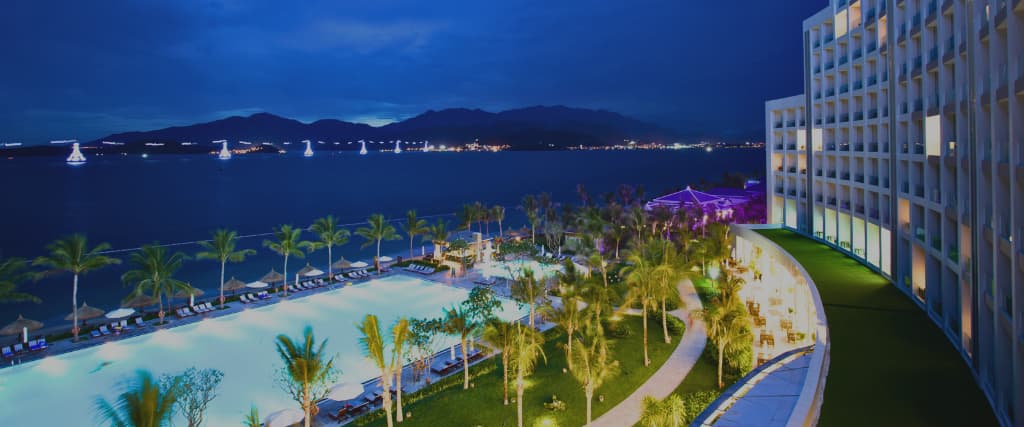
Experiential luxury travel often emphasises sustainability and responsible tourism practices. This might involve staying in eco-friendly accommodations, participating in conservation activities, or supporting local businesses and communities. By choosing sustainable travel options, you can help to minimise your impact on the environment and support the long-term well-being of the destinations you visit.
At the same time, Experiential luxury travel can also help you gain a deeper understanding of a destination and its history. For example, you might visit local museums or historical sites, or take part in guided tours that provide insights into the culture and traditions of the area. This can help you appreciate the significance of a place and its people and can enrich your overall travel experience.
Finally, experiential luxury travel can have a positive impact on the destinations you visit. By supporting local businesses and engaging with the community, you can help to contribute to the local economy and promote sustainable tourism practices. This can go some way to ensuring that the destinations you love remain vibrant and healthy for future generations to enjoy.
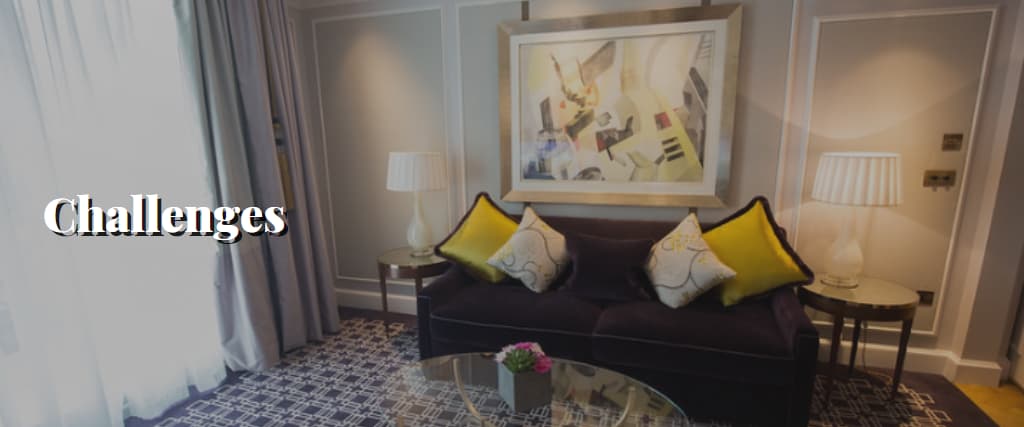
Challenges
Of course, there are some challenges to experiential luxury travel as well. One of the main challenges is that it can be more expensive than traditional forms of tourism.
Many of the experiences that fall under this category require a higher level of service and customisation, and as a result, they can come with a higher price tag.
Another challenge is that experiential luxury travel requires a certain level of flexibility and open-mindedness. Travellers need to be willing to step outside of their comfort zone and try new things, which can be a bit confronting for some people. Additionally, some destinations may not have the infrastructure or resources to support experiential luxury travel experiences, which can limit the options available to travellers.
Despite these challenges, the popularity of experiential luxury travel shows no signs of slowing down. In fact, it is likely that we will continue to see more and more travellers seeking out these types of experiences in the coming years as the concept becomes prevalent in mainstream culture.
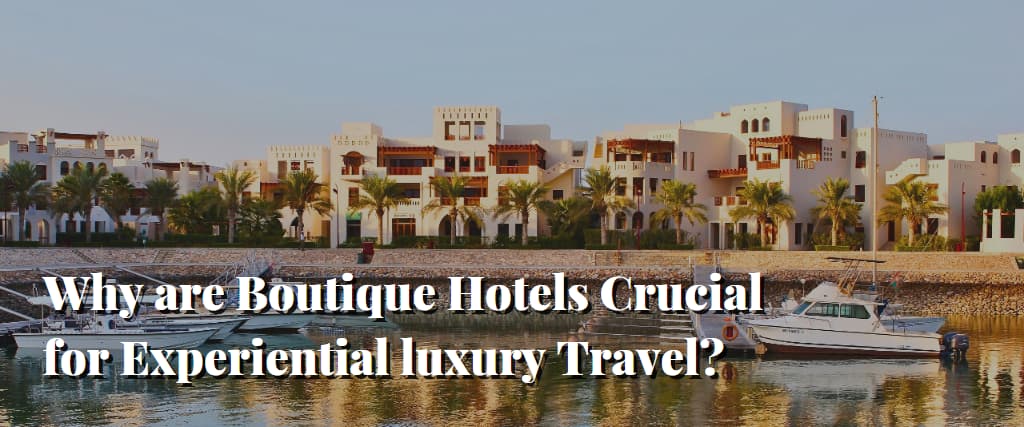
Why are Boutique Hotels Crucial for Experiential luxury Travel?
In general, boutique hotels are a crucial part of the experiential luxury travel trend because they specifically offer personalised, authentic, and unique experiences that help travellers connect with a destination on a deeper level.
By prioritising sustainability, community engagement, and local authenticity, boutique hotels can help to create meaningful and memorable travel experiences that go beyond just a luxurious place to stay.
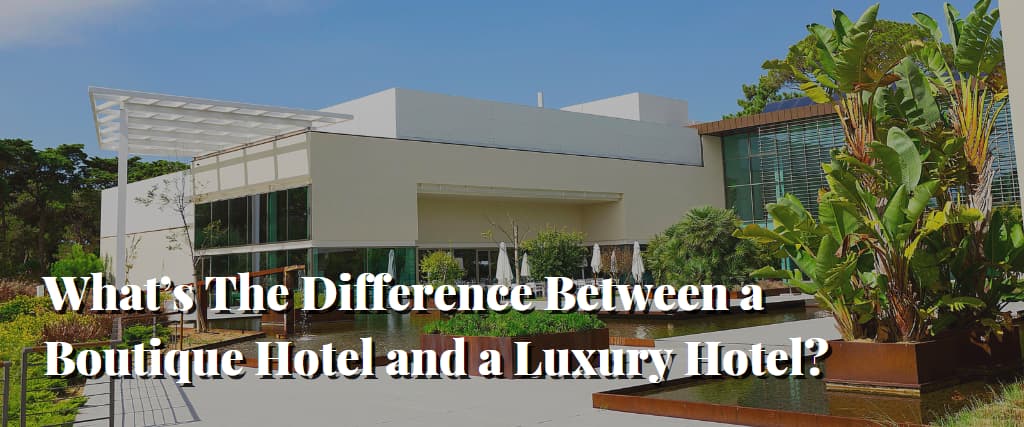
What’s The Difference Between a Boutique Hotel and a Luxury Hotel?
Essentially, boutique hotels and luxury hotels are both types of high-end accommodations. But they differ in several key ways.
Generally, boutique hotels are smaller than luxury hotels, with fewer rooms and a more intimate atmosphere. Often, luxury hotels, on the other hand, are often larger and may have hundreds of rooms.
Additionally, boutique hotels tend to offer a higher degree of personalisation and attention to detail than luxury hotels. It can incorporate customised amenities, custom recommendations for local experiences, and a more tailored service overall. While luxury hotels may also offer personalised service, they may be less individualised than what you would find in a bespoke, boutique hotel.
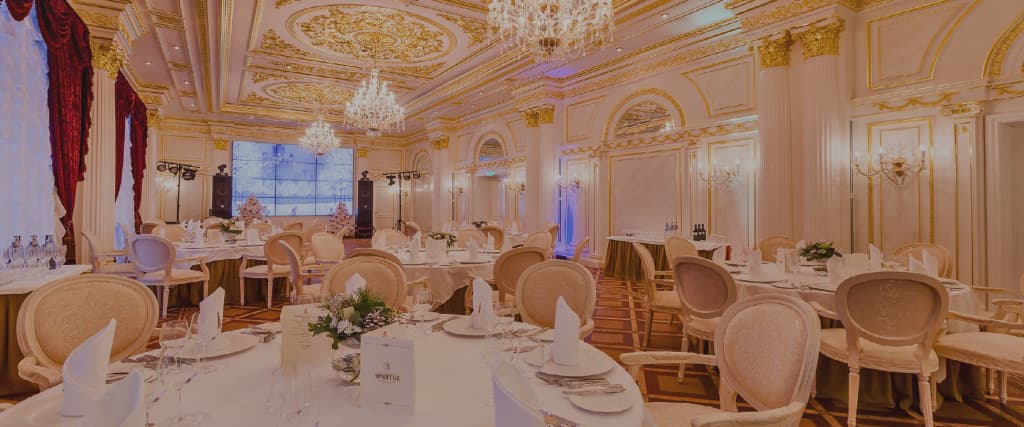
Furthermore, boutique hotels are often designed to reflect the local culture and environment, with unique and eclectic decor that is tailored to the hotel’s location. Luxury hotels, on the other hand, tend to have a more uniform design aesthetic that is consistent across different locations. They also usually offer a wider range of amenities, such as multiple restaurants, bars, and spas, as well as fitness centres, pools, and other recreational facilities. Boutique hotels, by contrast, may have fewer amenities, but they may be more focused on offering unique experiences that reflect the local culture.
Overall, boutique hotels also tend to be a little less expensive than luxury hotels, although this can vary depending on the specific hotel and location. Luxury hotels often come with a higher price tag due to their larger size, more extensive amenities and often their prime real estate.
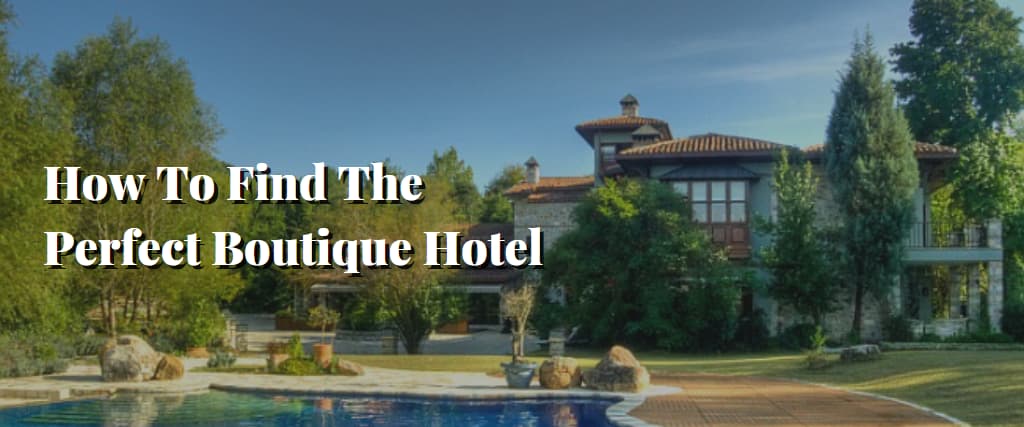
How To Find The Perfect Boutique Hotel
Finding the perfect boutique hotel can be a bit of a challenge, as there are many factors to consider, such as location, design, amenities, and price. However, with some detailed research and thorough consideration, you can find a boutique hotel that matches your preferences and requirements.
Before you start looking for a boutique hotel, it’s important to think about your travel goals and what you want to get out of your trip. Are you looking for a relaxing getaway, a cultural immersion experience, or an adventure-packed vacation? Knowing what you’re looking for can help you narrow down your search and find a boutique hotel that caters to your specific interests.
With this in mind, the location of the boutique hotel is an important factor to consider, as it can greatly impact your overall travel experience. Do you want to be in the heart of a bustling city, or do you prefer a more secluded and tranquil setting? Consider the nearby attractions, restaurants, and activities when choosing a location.
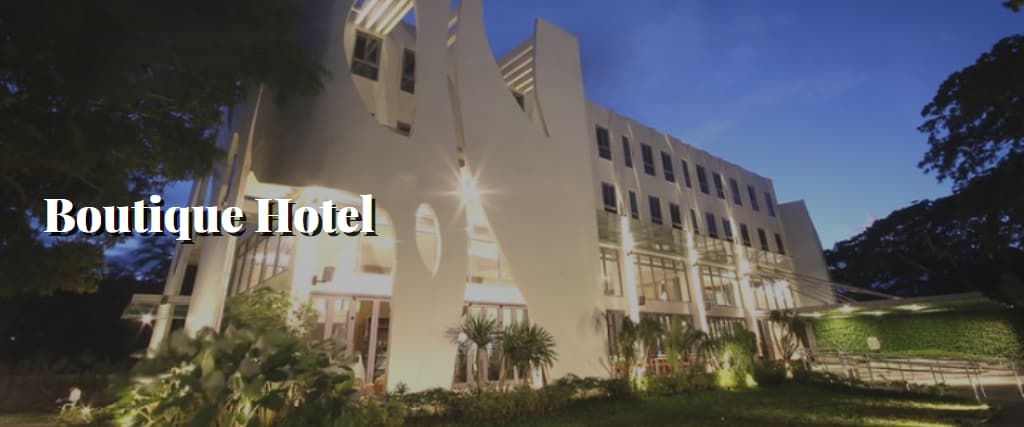
There are many websites that specialise in boutique hotels, such as Mr & Mrs Smith, Tablet Hotels, and Small Luxury Hotels of the World. These websites offer a curated selection of boutique hotels around the world, with detailed information about each property, including photos, amenities, and guest reviews. Be sure to read through the reviews to get an idea of what previous guests liked and disliked about each hotel.
While boutique hotels may not have as many amenities as larger luxury hotels, they should still offer the basic amenities that you need for a comfortable stay. Check what comes with the room, such as Wi-Fi, air conditioning, and a comfortable bed. Also, determine what on-site amenities they offer, i.e. a restaurant, spa, or fitness centre.
Lastly, it is always worth considering the price. In general, the cost of a boutique hotel can vary greatly, from those that operate at a budget-friendly level to others that match high-end luxury properties.
Be sure to set a budget for your trip and look for boutique hotels that fit within your price range. Keep in mind that boutique hotels may offer more value for the price, given that they typically provide personalised service and unique experiences that you wouldn’t find in a larger hotel.
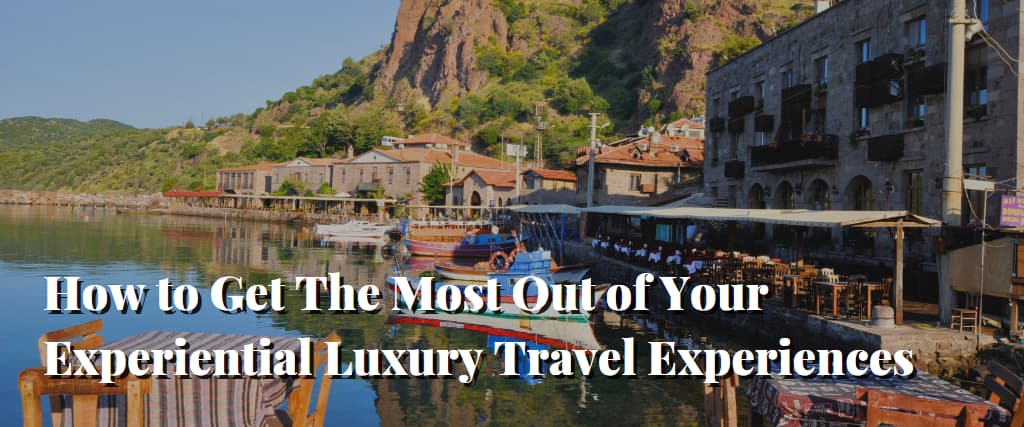
How to Get The Most Out of Your Experiential Luxury Travel Experiences
Now that you are aware of the concept of experiential luxury travel experiences, you may well be wondering how you can get the most out of your experiences of it.
Well, there are several things you should do. Firstly, before booking any experiences, make sure to do your research to ensure that they align with your interests and values. Look for experiences that are authentic, sustainable, and respectful of the local culture.
Secondly, experiential luxury travel requires a certain level of flexibility and open-mindedness. So, be willing to try new things and step outside of your comfort zone to fully experience a destination.
Where possible, you should also look to support local businesses and communities. Make an effort to eat at local restaurants, shop at local markets, and stay in local, owner-operated accommodations.
Lastly, it also goes without saying that experiential luxury travel experiences should be respectful of the environment and local culture. So, make an effort to minimise your impact on the environment and be respectful of local customs and traditions.
Conclusion
The rise of experiential luxury travel represents a shift in the way that travellers approach their vacations.
Rather than simply seeking out beautiful destinations and comfortable accommodations, more and more travellers are looking for unique and authentic experiences that allow them to connect with a place and its people on a much deeper level.
While there are certainly challenges to experiential luxury travel, the benefits of these types of experiences far outweigh them.
By immersing oneself in a destination and engaging with the local community, travellers can form a stronger connection with a place and help to ensure that their visit has a positive impact on the destination and the people who live there.
